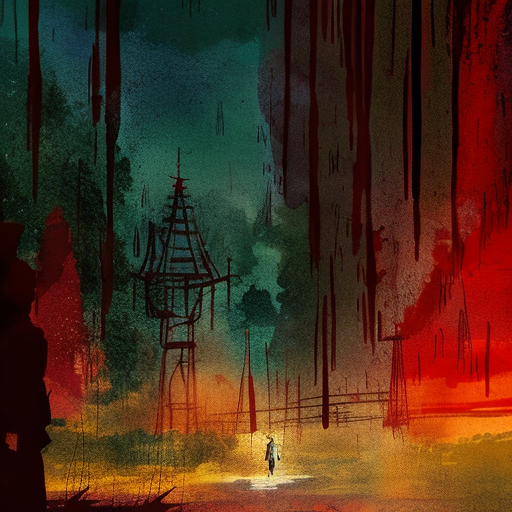Summary: The Complete Short Stories of Ernest Hemingway is a collection of 70 short stories that showcase Hemingway’s mastery of the form, exploring themes of love, war, loss, and the human condition with his signature spare and direct prose.
The Power of Hemingway’s Prose
Hemingway’s writing style is characterized by its simplicity, clarity, and economy of words. He believed in the power of omission, using only the essential details to convey his stories. This minimalist approach allows readers to fill in the gaps and engage with the narrative on a deeper level. Hemingway’s prose is often described as “iceberg theory,” where the surface-level story is just the tip of the iceberg, and the true meaning lies beneath.
In “Hills Like White Elephants,” a couple discusses the possibility of having an abortion without explicitly mentioning it. Through their dialogue, Hemingway explores themes of communication, power dynamics, and the difficult choices people face. The story’s open-ended conclusion leaves readers to ponder the characters’ fate and the broader implications of their decision.
War and Its Aftermath
As a World War I veteran, Hemingway drew heavily from his own experiences in his stories about war. In “A Clean, Well-Lighted Place,” two waiters discuss an old man who frequents their café late at night. Through their conversation, Hemingway explores the themes of loneliness, despair, and the search for meaning in a chaotic world. The story’s spare prose and understated dialogue capture the characters’ inner turmoil and the existential questions they grapple with.
In “The Snows of Kilimanjaro,” a writer lies on his deathbed while reflecting on his life and the choices he made. Hemingway delves into themes of regret, mortality, and the fleeting nature of time. The story’s vivid descriptions of the African landscape and the protagonist’s internal monologue create a sense of urgency and introspection.
Love and Loss
Hemingway’s stories often explore the complexities of love and the pain of loss. In “The Short Happy Life of Francis Macomber,” a wealthy couple embarks on a safari in Africa, where their relationship is tested in unexpected ways. Through the characters’ interactions with each other and the African wilderness, Hemingway examines themes of masculinity, courage, and the fragility of human relationships.
In “The Killers,” two hitmen enter a small town diner with the intention of killing a former boxer. The story unfolds through the eyes of the diner’s employees, who are caught in a web of violence and fear. Hemingway explores themes of power, fate, and the consequences of one’s actions. The story’s tense atmosphere and terse dialogue create a sense of impending doom.
- Hemingway’s spare and direct prose allows readers to engage with the narrative on a deeper level.
- War and its aftermath are recurring themes in Hemingway’s stories, exploring the human condition in times of conflict.
- Love and loss are central themes in Hemingway’s work, delving into the complexities of relationships and the pain of separation.
“The world breaks everyone, and afterward, some are strong at the broken places.” – Ernest Hemingway
Hemingway’s short stories are a testament to his literary genius, showcasing his ability to capture the essence of the human experience in a few carefully chosen words. Through his spare prose, he explores themes of love, war, loss, and the human condition, leaving readers with a profound understanding of what it means to be alive. The Complete Short Stories of Ernest Hemingway is a must-read for anyone seeking to delve into the mind of one of the greatest writers of the 20th century.












